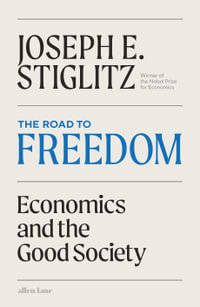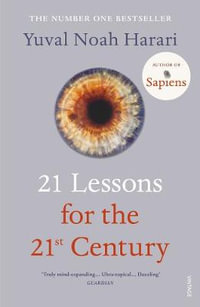The power of political blogs in American politics is now evident to anyone who follows it. In Typing Politics, Richard Davis provides a comprehensive yet concise assessment of the growing role played by political blogs and their relationship with the mainstream media. Through a detailed content analysis of the most popular political blogs--Daily Kos, Instapundit, Michelle Malkin, and Wonkette--he shows the degree to which blogs influence the traditional news media. Specifically, he compares the content of these blogs to four leading newspapers noted for their political coverage: The Washington Post, The New York Times, The Wall Street Journal, and The Washington Times. He explains how political journalists at these papers use blogs to inform their reportage and analyzes general attitudes about the role of blogs in journalism. Drawing on a national survey of political blog readers, Davis concludes with a novel assessment of the blog audience. Compact, accessible, and
well-researched, Typing Politics will be an invaluable contribution to the literature on a phenomenon that has reshaped the landscape of political communication.
Industry Reviews
"Students of US politics will find this book an interesting examination of the development of a new, and controversial, political actor. From a methodological point of view, Davis poses an interesting research question and locates answers using a number of techniques. Summing Up: Recommended."--CHOICE
"With an empirical approach, Davis has crafted a thorough and thoughtful exploration of the dynamic role of blogs in American politics today."--U.S. Senate Majority Leader Harry Reid
"The world of online social-interactive media (OSIM) in general and political blogging in particular has been discussed in books by insiders and scholars alike. But Richard Davis's Typing Politics is a breakthrough out of the norm. While most of us who have written about blogs tend to do so in a general way, Davis is a veritable archaeologist of the individual blog post and commentary. His detailed study of some of the major polblogs reveals nuances
and complexities that will surprise both bloggers and those of us who study them. In the wake of an election year in which the role of OSIM was ubiquitous, Davis's book will be an important tool for better
understanding the online political world in which we now live."-David Perlmutter, Professor at the William Allen White School of Journalism and Mass Communications, University of Kansas author of Blogwars
"Richard Davis's book provides a much needed field guide to the variety of political blogs active today and the variety of impacts-some positive, some negative, and some simply noteworthy-on journalism and politics. The books uses traditional concepts from political science and mass communication to navigate the blooming, buzzing confusion of the blogosphere, reminding us that blogs are a new set of actors in an age-old political process of agenda setting.
The book offers useful conceptual guideposts for thinking about the impact of blogging on mainstream news and politics, and the reverse impact as well, and raises thought-provoking questions about the
future of news and politics in a blogged world."--Regina G. Lawrence, Kevin P. Reilly, Sr. Chair in Political Communication, Manship School of Mass Communication, Louisiana State University
"Blogs may serve a thousand purposes, but Richard Davis has proven that the impact of the political blogosphere is something not to be dismissed. In this well-organized and readable book, Davis places blogs in their political context, illuminating both their strengths and weaknesses. This mixture of stories and empirical research provide the reader with more than just a snapshot of the political blogosphere's contemporary composition. They delve into the
intricacies and nuances of audiences, ideologies, partisanship, political mobilization, and the sometimes messy and tense relationship between traditional and new forms of news dissemination."--Ken Rogerson,
Lecturer and Director of Undergraduate Studies for the Department of Public Policy at Duke University
"Students of US politics will find this book an interesting examination of the development of a new, and controversial, political actor. From a methodological point of view, Davis poses an interesting research question and locates answers using a number of techniques.... Recommended."--Social & Behavioral Sciences

























